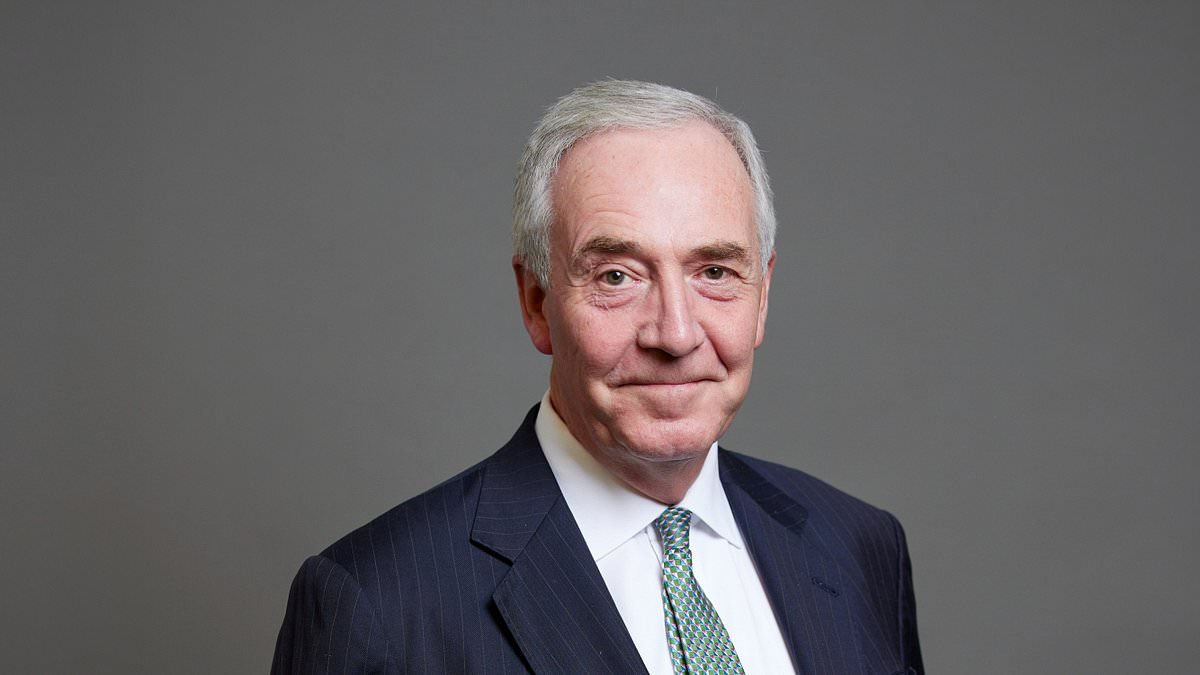The government’s flagship anti-extremist scheme must ‘up its game’ in the wake of failures to stop the Southport attack and the murder of Tory MP Sir David Amess, a major new report has concluded.
An official review of the Prevent scheme said ‘the jury is still out’ on whether a series of changes will improve its operation.
The report by Interim Independent Prevent Commissioner, Lord Anderson, said: ‘Prevent failed in both cases; and from these failures, lessons must be learned.’
Home Secretary Yvette Cooper commissioned the peer, a leading barrister, to scrutinise Prevent’s work in the wake of the last summer’s Southport murders.
Knifeman Axel Rudakubana killed Bebe King, six, Elsie Dot Stancombe, seven, and nine-year-old Alice da Silva Aguiar at a Taylor Swift-themed dance class, and injured 10 others.
A previous review, published in February, found Rudakubana had been referred to the programme Prevent three times.
But in a catalogue of blunders – including spelling his name wrong – experts failed to put the teenager on a de-radicalisation scheme before he embarked on his rampage.
In the case of Sir David’s 2021 murder, another earlier report revealed his killer Ali Harbi Ali was dismissed as a ‘very low’ terror threat just months before he bought a foot-long carving knife and started planning a terrorist atrocity.
The murdered MP’s daughter Katie Amess said earlier this year that Prevent was ‘not fit for purpose’ after Ali, 29, was discharged by Prevent ‘too quickly’.
Now Lord Anderson has declined to give Prevent a clean bill of health.
His report said: ‘An intensive series of efforts has been made by both the Home Office and CTP [counter-terrorism policing] to improve the relevant processes, training and guidance.
‘The jury is still out on some of these initiatives, and none of them can substitute for human judgement or remove the possibility of human error.’
But he added that several changes already made to the scheme last year ‘have the potential to improve in material respects the inner workings of the machine’.
The review urged Prevent to ensure its work addresses individuals who are obsessed with violence but do not fall into a clear terrorist category.
The recommendation reflects how the threat posed by Rudakubana was partly ignored by police and officials because of the ‘absence of a distinct ideology’.
Lord Anderson also said Prevent should be far more open about its activities.
‘Public transparency about the structures, systems and statistics of Prevent should be the default position,’ it said, and the Home Office and counter terrorism police should ‘adopt a pro-active approach to the release of such information’.
A Cabinet Office task force should be set up to begin looking at whether Prevent should be formally linked to ‘broader safeguarding and violence prevention system’, the report went on.
Lord Anderson’s 156-page review suggested ministers should look at ‘finding ways for young people to discuss and feed in ideas about Prevent’ and ‘addressing the particular circumstances of black and mixed heritage boys who are less likely to have been referred for early help’.
Lord Anderson said: ‘More needs to be done.
‘It has to be clear that people with a fascination with extreme violence can be suitable subjects for Prevent, even when they have no discernible ideology.
‘Prevent needs to up its game in the online world, where most radicalisation now takes place.
‘It needs to get better at information-sharing, and be more open with the public to gain the trust on which it depends.’
The latest review comes just over two years after serious failings in the anti-extremism programme were exposed by another major inquiry.
An independent review of Prevent by William Shawcross, former head of the Charity Commission, warns the scheme applied a ‘double standard’ to Islamist and far-Right threats.
It found Prevent was failing to tackle radicalisation and that Islamist ideology had been ‘misinterpreted, misunderstood or even overlooked’ by officials.
It prioritised countering far-Right activity above the prime Islamist threat.
In some cases, the £49million-a-year programme set up in 2006 had directly funded or engaged with extremists and was ‘out of kilter with the rest of the counter-terrorism system’, Mr Shawcross said.
The number of individuals referred to Prevent had become ‘politicised’ because officials feared being labelled Islamophobic or racist, it went on.
The Home Secretary said today she would ‘act immediately’ on the findings of Lord Anderson’s review.
Ms Cooper told MPs in a written statement: ‘My department remains steadfast in its commitment to keeping the public safe and safeguarding people at risk of radicalisation.’
‘We will clarify Prevent thresholds in guidance and training to ensure that frontline public sector workers subject to the Prevent Duty understand that those “fascinated with extreme violence or mass casualty attacks” should be referred to Prevent,’ she said.
‘We will complete this work by the end of September.’
She also pledged to ‘Improve transparency and information sharing’ by the end of the year, ‘strengthen our approach to tackling online radicalisation’ and ‘continue exploratory work on how Prevent connects into wider safeguarding and violence prevention pathways to ensure no-one can fall between the cracks’.
Separately, the Southport Public Inquiry, led by Sir Adrian Fulford, is due to resume later thsi year and will publish its findings later.
